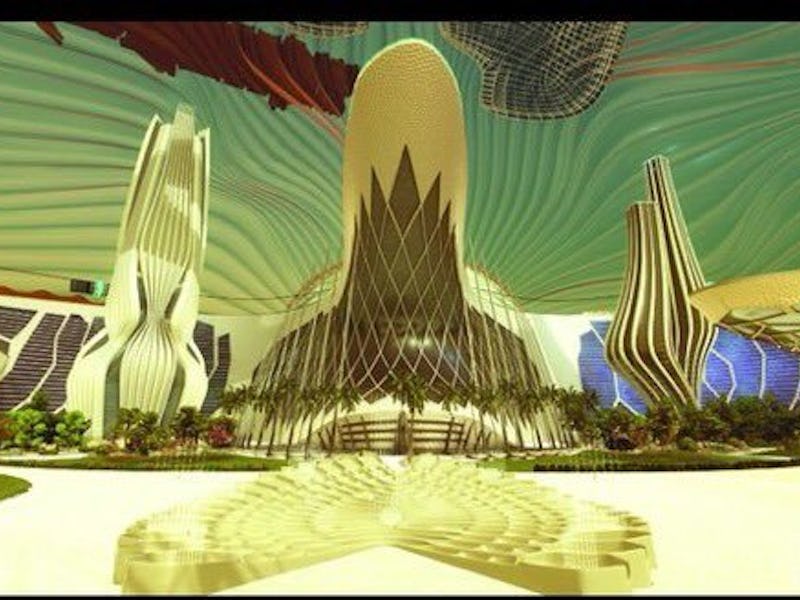Just 100 years from now, the United Arab Emirates plans to build the first inhabitable human settlement on Mars. Sheikh Mohammed bin Rashid Al Maktoum, ruler of Dubai and vice president and prime minister of the UAE, announced the Mars 2117 Project at the 5th World Government Summit in Dubai on February 14.
“Human ambitions have no limits, and whoever looks into the scientific breakthroughs in the current century believes that human abilities can realize the most important human dream,” Sheikh Mohammed said in a statement.
This effort will first focus on preparing human cadres to work on sending people to Mars over the next decades and developing a faster mode of transportation to and from Mars. The project will also create an integrated scientific visualization of transportation on Mars, how the settlement will look, and the production food and energy.
“The new project is a seed that we plant today, and we expect future generations to reap the benefits, driven by its passion to learn to unveil a new knowledge,” Sheikh Mohammed said in a statement. “The landing of people on other planets has been a longtime dream for humans. Our aim is that the UAE will spearhead international efforts to make this dream a reality.”
At the summit, an Emirati team of engineers, scientists, and researchers showcased a concept for a human city on Mars built by robots. This plan highlighted transportation, power production, food, infrastructure, and construction materials of the Martian city.
The United Arab Emirates aims to build the first inhabitable human settlement on Mars by 2117.
The UAE’s vision of Mars reflects the current futuristic vibe of Dubai, with tall and sleek skyscrapers and towers, robot lifeguards, and a rich tech accelerator program. Dubai is building its own version of Hyperloop One to transport its citizens around the city at 700 miles per hour, so expect no less than advanced cutting edge technology in Dubai’s vision for transportation. The Mars 2117 Project will not only contribute to life on Mars, but people’s lives on Earth as well, especially in transportation, energy, and food.
The Mars 2117 Project will first focus on preparing human cadres to work on sending people to Mars and developing a faster mode of transportation to and from Mars.
The project will be developed in partnership with major scientific research institutions, starting with an Emirati scientific team to develop the skills and capabilities of Emiratis. According to Sheikh Mohammed, the Mars 2117 Project is driven by a vision to encourage science and technology education, as well as a space pioneering passion, for Emirati youth. This project will eventually extended to include international researchers.
“The Mars 2117 Project is a long term project, where our first objective is to develop our educational system so our sons will be able to lead scientific research across the various sectors,” Sheikh Mohamed bin Zayed, Crown Prince of Abu Dhabi, said in a statement.
Dubai will be competing with many other countries and private companies who are also vying to get to Mars as well. The UAE wants to send its first unmanned probe to Mars by 2021, but that’s already later than other major robotics missions coming up from the European Space Agency and Russia, China, and NASA.
The UAE will be competing with other countries and private corporations to send people to Mars.
As far human exploration of Mars goes, NASA hopes to send people to Mars by the 2030s. Boeing is working on a spacecraft to transport people to the red planet. And SpaceX CEO Elon Musk wants to send people to Mars by 2025 and start colonizing the planet within a decade. Although the UAE has a much longer timeframe for colonizing Mars, working on a futuristic city on the red planet over the next 100 years may be a more realistic goal.
